
H. Steven Moffic, MD, suggests its time to reassess our ethical priorities.

H. Steven Moffic, MD, suggests its time to reassess our ethical priorities.

Explore how innovation anxiety affects personal and professional lives, and discover strategies to embrace change and reduce stress effectively.

Explore the healing power of poetry as psychiatrists discuss trauma, transformation, and connection in their latest insightful conversation.

Panelists discuss how real-world experience with xanomeline/trospium chloride shows efficacy across all 3 symptom domains with manageable gastrointestinal adverse effects that typically resolve within 2 weeks, requiring slow titration and patient education about empty stomach dosing.

Panelists discuss how xanomeline/trospium chloride represents a first-in-class medication with a novel muscarinic mechanism that addresses positive, negative, and cognitive symptoms while avoiding typical antipsychotic adverse effects such as movement disorders and prolactin elevation.
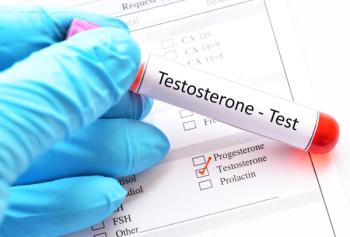
Tom Hildebrandt, PsyD, explores how sex hormones influence eating disorders, revealing critical insights into binge eating and bulimia nervosa.

"My sons, daughters, young lovers and friends. I don’t know them."
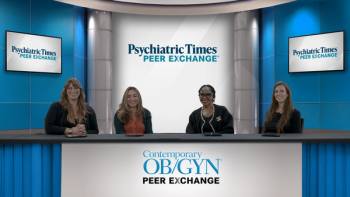
Experts discuss that while anyone can experience perinatal mood and anxiety disorders, individuals with personal or family mental health histories, recent trauma, or medication changes are at higher risk, and emphasize the critical importance of informed, individualized medication management during pregnancy and lactation to balance risks, prevent undertreatment, and ensure the well-being of both parent and child.

Experts discuss how perinatal mental health disorders can significantly impact not only the birthing individual but also parenting capacity, partner relationships, and child development, emphasizing the need for a holistic, trauma-informed, and family-centered approach that addresses the mental health needs of both parents, supports household well-being, and mitigates long-term risks for children.

In the movie, "Oppenheimer," we see a glimpse of atomic fallout and the consequences of war. How does this apply to today's global events?

Panelists discuss how Jacob’s case demonstrates the importance of recognizing negative symptoms that preceded positive symptoms by nearly a year, and how a partial response to risperidone with continued breakthrough symptoms and cognitive “fogginess” indicates the need for treatment optimization.

Panelists discuss how clinicians can better identify subtle and unreported schizophrenia symptoms through systematic evaluation of positive symptoms, negative symptoms, cognitive deficits, and functional impairment, which often requires input from family members and caregivers.

Panelists discuss the need for individualized narcolepsy management using complementary therapies like pitolisant, solriamfetol, and lower-sodium oxybate; emphasize persistence in overcoming insurance barriers through detailed documentation; and highlight practical adherence strategies alongside patient education and psychosocial support—including resources like Project Sleep and cognitive behavioral therapy—to optimize outcomes.

Panelists discuss the importance of building a flexible, trusting long-term relationship with regular, personalized follow-ups that actively explore patient challenges and adapt treatment as life changes occur, while emphasizing persistence in overcoming insurance barriers, the benefits of telehealth for access, and the critical role of psychosocial support including education and cognitive behavioral therapy (CBT) to help patients manage narcolepsy’s impact on daily life.

Panelists discuss individualized, shared decision-making approaches to newer narcolepsy treatments like low-sodium oxybate, traditional oxybate, and solriamfetol, emphasizing lifestyle interventions such as the RISE UP protocol and addressing factors like iron deficiency, while highlighting the importance of tailored monitoring and patient-provider trust for long-term management.

Discover how hormonal differences influence the development of bulimia nervosa and binge eating disorder, revealing potential biomarkers and treatment strategies.

"What we did to the trees, what we did to the earth, we did to our sons, to our daughters..."

Experts discuss the importance of recognizing that perinatal mood and anxiety disorders (PMADs) can emerge before, during, or after pregnancy—often influenced by factors like pregnancy intention—and emphasize the need for comprehensive, nuanced diagnosis and holistic care that extends beyond postpartum depression to include anxiety, obsessive-compulsive disorder, posttraumatic stress syndrome, and other conditions, ensuring timely identification and support throughout the entire perinatal period.

Experts discuss how perinatal mental health conditions—including postpartum depression, which is distinct from transient postpartum blues—require careful clinical differentiation, precise assessment, and individualized care, emphasizing the importance of expanding awareness, reducing stigma, and ensuring early, multidisciplinary intervention to support patient well-being and functional recovery.

The social climate for physician well-being has worsened. Will this lead to increased retirements? Will this further escalate the situation?
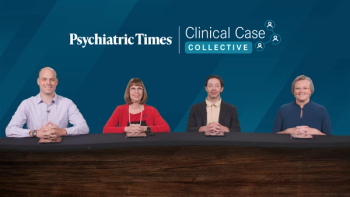
Panelists discuss how a patient named Kerstin was diagnosed with attention-deficity/hyperactivity disorder (ADHD) later in life during college when she struggled with organization and scheduling beyond her known dyslexia, leading to successful treatment with various stimulant medications including participation in clinical trials.

Panelists discuss how stimulant and nonstimulant attention-deficity/hyperactivity disorder (ADHD) medications have different adverse effect profiles, with stimulants causing concerns such as misuse potential, cardiovascular effects, tics, and growth suppression.

Debate over using SSRIs in pregnancy in recent FDA focus group raises questions, despite extensive research supporting SSRI use for maternal mental health.
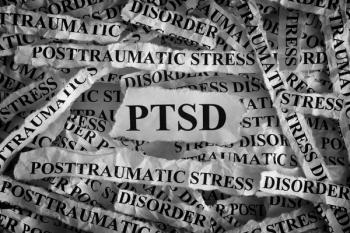
There is no magical cure for PTSD... but in what areas can we improve treatment outcomes and real-world functioning for patients with PTSD?

Panelists discuss a woman aged 26 years with narcolepsy type 2 whose modafinil is ineffective and causes adverse effects, highlighting solriamfetol and oxybates as treatment options while emphasizing personalized care that integrates medication with lifestyle and behavioral strategies.

Panelists discuss the multifaceted barriers to medication adherence in narcolepsy, highlighting access issues, forgetfulness, mood disorders, and adverse effects, while emphasizing practical tools like habit-stacking, sleep logs, and routine reinforcement to support consistency and reframe treatment as a lifelong support rather than a temporary fix.

Gus Alva, MD, discusses the FDA committee vote on brexpiprazole for PTSD, what it means, and what's next.
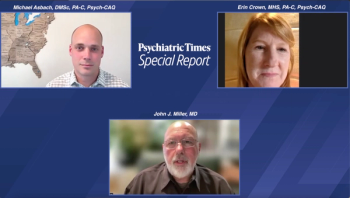
A trio of practitioners react to the FDA advisory committee's 10-1 vote against recommending approval of brexpiprazole (Rexulti) adjunctive to sertraline for adults with PTSD.

"Just like moons and like suns, With the certainty of tides, Just like hopes springing high, Still I'll rise..."

Rebecca Barbee, PA-C, CAQ-Psych, shares insights ahead of the the FDA meeting discussing brexpiprazole for PTSD.